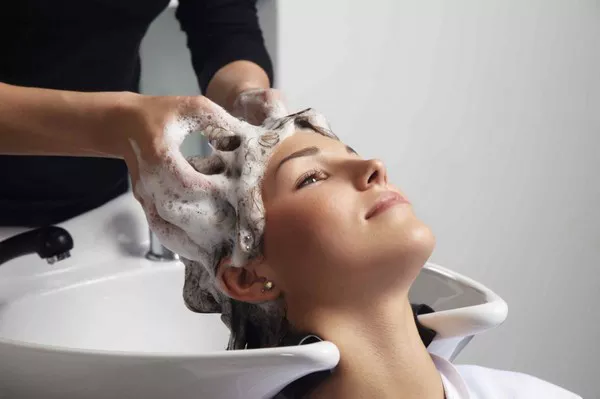Living with psoriasis can be challenging, especially when it affects the scalp. Psoriasis on the scalp often leads to itching, flaking, and discomfort, making it crucial to find effective treatment options. Among the arsenal of products available, anti-psoriasis shampoos play a vital role in managing symptoms and promoting scalp health. In this comprehensive guide, we delve into the intricacies of choosing the best anti-psoriasis shampoo, considering active ingredients, scalp types, severity of symptoms, additional considerations, proper usage, lifestyle adjustments, and user testimonials.
Active Ingredients: Understanding the Power Behind Anti-Psoriasis Shampoos
Anti-psoriasis shampoos typically contain various active ingredients designed to target psoriasis symptoms and promote scalp health. Here’s a breakdown of some common active ingredients and their effectiveness:
1. Coal Tar: Coal tar has been used for decades to treat psoriasis due to its anti-inflammatory and anti-proliferative properties. It helps reduce itching, scaling, and inflammation associated with scalp psoriasis. While highly effective, coal tar shampoos may have a strong odor and can cause skin irritation in some individuals.
2. Salicylic Acid: Salicylic acid is a keratolytic agent that helps remove scales and dead skin cells, making it beneficial for scalp psoriasis. It penetrates the skin to soften scales, making them easier to remove during shampooing. Salicylic acid shampoos are often used in combination with other active ingredients for enhanced efficacy.
3. Zinc Pyrithione: Zinc pyrithione is known for its antifungal and antibacterial properties, making it effective in reducing scalp inflammation and flaking associated with psoriasis. It helps control the proliferation of Malassezia, a yeast-like fungus commonly found on the scalp. Zinc pyrithione shampoos are gentle enough for frequent use and suitable for long-term maintenance.
4. Ketoconazole: While primarily used to treat fungal infections, ketoconazole also exhibits anti-inflammatory properties beneficial for scalp psoriasis. It helps reduce itching, redness, and scaling by targeting the underlying inflammation and fungal overgrowth. Ketoconazole shampoos may be prescribed for severe scalp psoriasis or when other treatments have failed.
Scalp Types: Matching Shampoos to Individual Needs
Understanding your scalp type is crucial for selecting the right anti-psoriasis shampoo. Here’s a guide to matching shampoos with different scalp types:
1. Dry Scalp: For individuals with dry scalp psoriasis, gentle and moisturizing shampoos are key. Look for shampoos containing hydrating ingredients like aloe vera, glycerin, or coconut oil. Avoid harsh sulfates that can further strip moisture from the scalp.
2. Oily Scalp: Those with oily scalp psoriasis should opt for clarifying shampoos that help regulate sebum production and remove excess oil and debris. Look for shampoos containing ingredients like tea tree oil, witch hazel, or citrus extracts to balance oiliness without drying out the scalp.
3. Sensitive Scalp: If you have sensitive scalp psoriasis, choose fragrance-free and hypoallergenic shampoos to minimize irritation. Look for gentle formulas with soothing ingredients like chamomile, oatmeal, or colloidal oat extract.
Severity of Symptoms: Tailoring Treatment to the Extent of Psoriasis
The severity of psoriasis symptoms varies from person to person, influencing the choice of anti-psoriasis shampoo. Consider the following recommendations based on symptom severity:
1. Mild Symptoms: For mild scalp psoriasis characterized by minimal scaling and itching, over-the-counter coal tar or salicylic acid shampoos may provide sufficient relief. These shampoos can be used regularly to maintain scalp health and prevent flare-ups.
2. Moderate Symptoms: If scalp psoriasis symptoms are moderate, consider shampoos containing a combination of active ingredients such as coal tar, salicylic acid, and zinc pyrithione for comprehensive relief. Prescription-strength formulations may also be necessary for better symptom control.
3. Severe Symptoms: In cases of severe scalp psoriasis with intense itching, inflammation, and thick scales, prescription-strength ketoconazole shampoos or medicated shampoos containing corticosteroids may be required. These shampoos should be used under the guidance of a healthcare professional due to potential side effects.
Additional Considerations: Beyond Active Ingredients
When choosing an anti-psoriasis shampoo, consider the following factors:
- Fragrance: Opt for fragrance-free shampoos to minimize irritation, especially for those with sensitive scalp psoriasis.
- Hair Type: Consider your hair type (color-treated, fine, thick) and choose shampoos that address specific needs without compromising scalp health.
- ersonal Preferences: Factor in personal preferences such as texture, lather, and packaging when selecting a shampoo for long-term use.
- Usage Tips & Precautions: Maximizing Effectiveness and Safety
To make the most of your anti-psoriasis shampoo:
- Follow Instructions: Use the shampoo as directed by your healthcare provider or as indicated on the packaging.
- Be Consistent: Use the shampoo regularly as part of your hair care routine for optimal results.
- Monitor for Side Effects: Watch for any adverse reactions such as irritation, redness, or worsening of symptoms. Discontinue use if necessary and consult your healthcare provider.
- Avoid Overuse: While it may be tempting to shampoo frequently, overwashing can strip the scalp of its natural oils and exacerbate psoriasis symptoms. Aim for no more than a few times a week unless otherwise directed.
- Lifestyle & Home Remedies: Enhancing Scalp Health Naturally
In addition to using anti-psoriasis shampoos, consider the following lifestyle adjustments and home remedies to manage scalp psoriasis:
- Stress Management: Practice stress-reducing techniques such as mindfulness, meditation, yoga, or deep breathing exercises, as stress can exacerbate psoriasis symptoms.
- Scalp Massage: Gently massage the scalp to improve circulation and promote relaxation. Use fingertips or a scalp massage brush to loosen scales and increase the effectiveness of shampoos.
- Apple Cider Vinegar Rinse: Dilute apple cider vinegar with water and use it as a final rinse after shampooing to help balance the scalp’s pH and reduce itching and inflammation.
- Healthy Diet: Maintain a balanced diet rich in fruits, vegetables, lean proteins, and omega-3 fatty acids, which can help reduce inflammation and support overall scalp health.
User Reviews & Testimonials: Real Stories, Real Results
Don’t just take our word for it—here are some testimonials from individuals who have found relief with anti-psoriasis shampoos:
“I’ve struggled with scalp psoriasis for years, trying various treatments with limited success. Since using a coal tar shampoo recommended by my dermatologist, my symptoms have significantly improved. The itching has subsided, and my scalp feels healthier than ever.” – Emily, 35
“After trying numerous over-the-counter shampoos without relief, I finally consulted with a dermatologist who prescribed a ketoconazole shampoo. Within weeks, the redness and scaling on my scalp had diminished, and I no longer feel self-conscious about my psoriasis.” – Alex, 42
Conclusion
In conclusion, managing scalp psoriasis requires a multifaceted approach, with anti-psoriasis shampoos playing a pivotal role in symptom management. By understanding active ingredients, matching shampoos to scalp types and symptom severity, considering additional factors, following proper usage tips, incorporating lifestyle adjustments, and heeding user testimonials, individuals can find the best anti-psoriasis shampoo to suit their needs and reclaim scalp health and confidence.

























